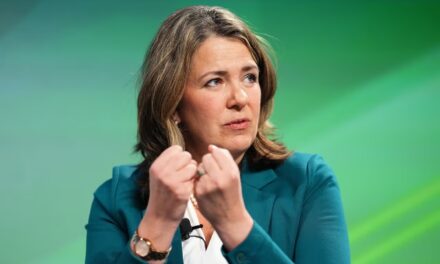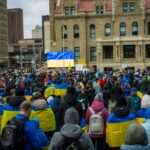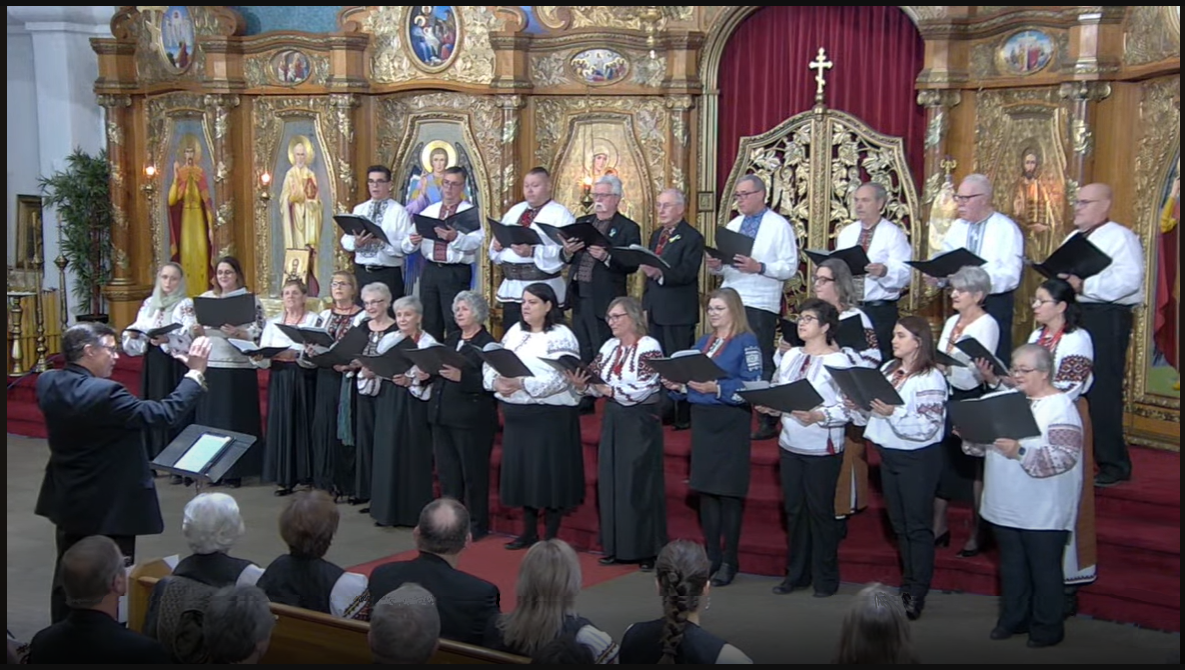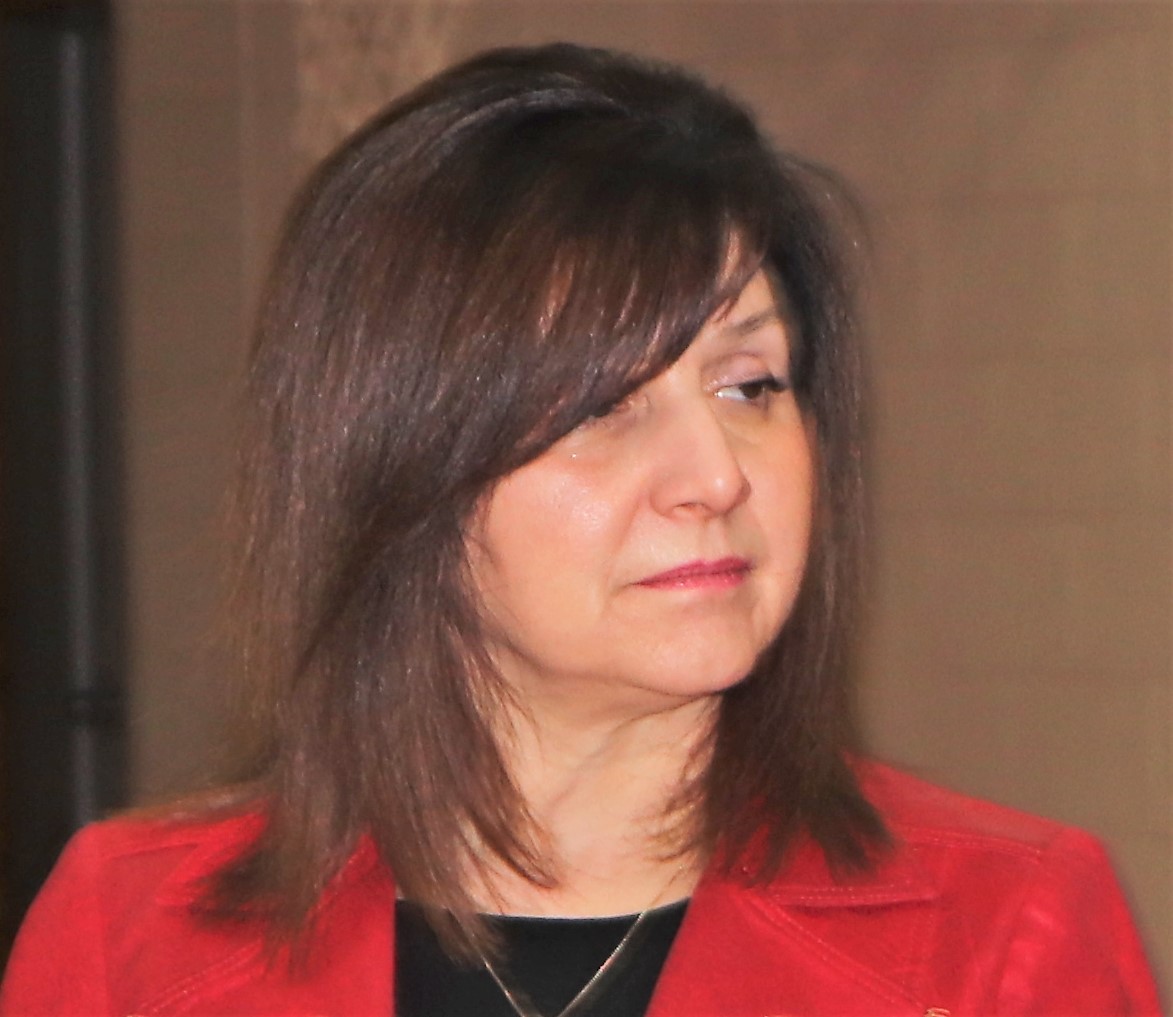Yuri Bilinsky. New Pathway – Ukrainian News.
Larysa Harapyn is one of the most prominent personalities of Ukrainian descent in the Canadian mainstream media. Journalist by training, she started in the profession in early 1990s, as a host with the Ukrainian program Svitohliad which was Alma Mater for many Ukrainian Canadian journalists and producers. After four years at Svitohliad, her journalistic path led her to the CP-24 station. She must have been good because CP-24 hired her although her demo tape from Svitohliad was in Ukrainian. Harapyn’s resume also boasts a several years engagement with Sun News Network and, eventually, her current position with the National Post. Harapyn approached the National Post with an idea to develop a digital broadcasting platform which has now become one the Financial Post’s trademarks. The videos, which Harapyn hosts, are posted on the Financial Post’s website and YouTube channel. These videos cover a wide range of economic and financial issues and attract significant viewership due to their timeliness (“they are immediate and right at your fingertips – you do not have to wait for the six-o’clock news to be informed,” said Harapyn) and conciseness.
NP-UN spoke to Harapyn about her journalistic experience and some pressing contemporary economic and financial issues which she is covering these days.
NP-UN: Can you single out a couple of most interesting interviews you’ve had at the Financial Post?
Larysa Harapyn: I like the most that my job is different every day. I am perpetually reading and looking at different material to gain knowledge for different topics. We recently did an interview with Linda Hasenfratz, CEO of Linamar, a Canadian maker of auto parts. This interview was about shockproofing Canada – do we need to move the supply chains back to Canada, should we rely on what goes on elsewhere? We interview political figures, we’ve spoken to the leader of opposition Andrew Scheer to gain perspective on where Canada is headed and his thoughts on the next election. It’s always a spirited discussion with Unifor National President Jerry Dias. Every day is different and challenging for me.
NP-UN: It seems more difficult to extract an honest and open answer from a politician than from a business person. How do you open politicians during interviews?
Larysa Harapyn: You have to respect your guest, you have to respect boundaries. I understand that there is information that cannot always be shared. I’ll ask the question once and will try to approach it again because the public has a right to know. But of course politicians are subject to whatever the party line may be and there may be other reasons for their being reserved. Canada right now is in a very precarious position when it comes to China and the Meng Wanzhou case. The Prime Minister is grilled every day by journalists about this. There is such a thing as diplomacy – I am not approaching politicians to get them with a “gotcha!” question.
NP-UN: You’ve done dozens of interviews about the current economic situation in Canada. What is your conclusion – why is the housing market so strong in some parts of the country while the economic situation is so uncertain?
Larysa Harapyn: Everyone has used this word that we are in “unprecedented” times, no one has seen anything like this with regards to COVID-19. When we speak to the economists and CEOs of companies, they don’t have any textbooks, charts or spreadsheets that would foresee what the next three or six months may look like. These economists go back to what happened during 9/11, the Great Depression and the Spanish Flu to extract points on how we recovered then. However, the current situation is unique and nobody knows how it will play out. There is something else: unless there is a vaccine, there will be instability for some time, especially with the prediction of the second wave. Many experts are also saying that we need to buffer ourselves for the times like these, whether it’s our portfolios or debt levels. As far as the housing market is concerned, Canada Mortgage and Housing Corporation is predicting a double-digit decline while some real estate companies we are speaking to do not agree with that. When we spoke to Zoocasa CEO Lauren Haw recently, she pointed out the bidding wars that are happening now. There are such factors at play as low interest rates. But at the same time, immigration into Canada is lower now. Again, until there is a vaccine, I do not think we will see more concrete forecasts.
NP-UN: Do you have an understanding from your interviews that the Canadian government has a well thought-out policy for this trying time, that they are ahead of the curve now and are leading us in the right direction?
Larysa Harapyn: The gist of this question is deficits. We are looking at deficits for I don’t know how many decades to come. The economists are asking a question – are deficits the thing of the past? Because millenials are so used to debt, do they even care about these deficits? The Canadian government has been criticized for a slow reopening of the economy. They have to follow the health guidelines. But what will happen in the future? Because of the deficits, social programs will suffer or taxes will go up, or both. It will be interesting to see how governments will tackle this. Toronto Mayor John Tory has said the pandemic has cost the city millions, and in order to fill a budget hole property taxes would have to go up 47 per cent. Something will have to suffer somewhere.
Larysa Harapyn’s Ukrainian background
Larysa Harapyn is a second generation Ukrainian Canadian born in Etobicoke, ON. Her parents came to Canada after the Second World War; her father was born outside of Lviv, her mother is from Lemkivshchyna. Like so many Ukrainian Canadian children, Larysa could not speak English when she went to JK: “My parents tell me that at first I would be crying after school because I didn’t understand what everyone was saying”. Harapyn graduated from the Saint Demetrius Catholic School and a Ukrainian Saturday school, went to Plast and has been immersed into the Ukrainian Canadian community. Her son is continuing her traditions and is a student at the Josyf Cardinal Slipyj school and a member of Plast.
Share on Social Media




































